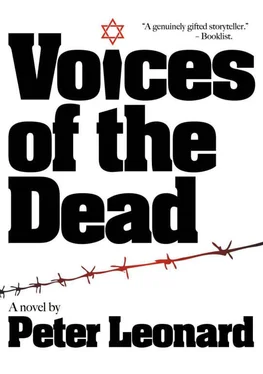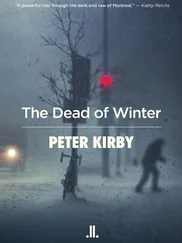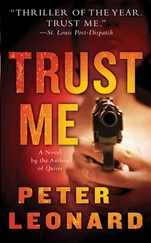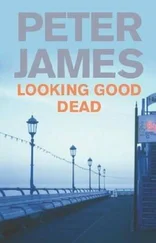“Hold on, Harry, rewind.”
“It was the beginning of November. The Nazis came to our house, ten armed men, banging on the door, seven in the morning. I got out of bed, looked out the window and saw them in front of the house. An SS sergeant told us to get dressed and come downstairs, bring what we could carry but no food.
“We started walking through Altstadt, joined now by other families, friends and neighbors forced out of their homes. Fifty of us, I counted. People were stumbling along, weighted down by layers of clothing, carrying suitcases and duffel bags. We walked through town and then we were outside of the city. I was thirteen, no idea what was happening. None of us did. They marched us sixteen kilometers to Dachau. I knew we were in trouble when I saw the walls and towers of the camp.”
“What’s that mean: Arbeit Macht Frei ,” Cordell said, trying to pronounce it, pointing to the words on the gate.
“Work makes you free. That was the irony,” Harry said. “The harder you worked the weaker you got. Only way to be free was to die.”
“What you do, they put you in here?”
Harry turned his head, held Cordell in his gaze. “I was a Jew.”
“You got a tat?”
“They didn’t do that here. They put your number on your uniform.” He paused. “Morning roll call was four a.m. in the summer and five thirty in the winter. After going to the bathroom we were given a cup of black coffee, then marched to the assembly area for roll call. After roll call the work commander, a prisoner, called out names for work details. If your name was called you were given a slice of bread and maybe a little piece of sausage. We worked, usually in the Plantage, farmland near the camp until eleven thirty. Marched back to the barracks for dinner, a small serving of cabbage or carrots and a small piece of potato. At twelve thirty we marched back to work until six, then back to camp for roll call, and back to the barracks for supper: watery soup, sometimes a bit of cheese.
“I saw a man beaten to death by a guard for stealing potato peelings, stuffing them in his pockets ’cause he was starving. I remember bodies that looked like skeletons stacked on top of each other outside the crematorium.
“Waking to the sounds of rifle shots, firing squads shooting prisoners who had broken the rules. I remember naked prisoners sprayed with a hose in January and left to die.”
“Why we here? This some kind of cathartic experience, got to purge this from your soul?”
“I’m getting my bearings.”
“Your bearings? What’s that mean?”
Harry told him about the mass execution, the mass grave, digging his way out and going to the farmhouse and being helped by the woman.
“Harry, you got some dark secrets. But I got to ask, you really think you gonna find this grave in the woods after all this time?”
“I don’t know.” Harry checked the side mirror, shifted into first gear and got back on the road, thinking about that day almost thirty years ago. “We went right out of the gate and got on the two-lane road heading to Munich, just like we’re doing now. I could see SS guards, eight men in two kubelwagens driving close behind the truck. I remember looking through the slit in the tarp, seeing forest, walls of trees on both sides of the road. Prisoners packed together, the heat from the bodies. The Nazis called it sardinpackung , packed like sardines. I remember seeing a concrete marker: Dachau 4 km , on the other side of the road. And then the truck slowing and turning into the woods, the back end bucking, going through the trees, and then panic because all at once we knew we weren’t being transferred to a sub-camp.”
“What’d you think?”
“I knew.”
They rode in silence for a few minutes, Harry clocking four kilometers on the odometer. They passed stands of trees, and a couple factories, and houses built in the green hills to the east. Everything looked different. The road was wider and there were billboards now, advertising beer and lodging, the 1972 Olympics coming to Munich. He drove a little farther — it was just by feel now, pulled over next to a wooded area, glanced at Cordell.
“This the place, Harry?”
“We’ll see.” It was just over four kilometers from Dachau. But Harry admitted to himself they could’ve been off by a hundred yards or half a mile. He got out of the car and went to the trunk, opened it and took out the shovel, leaned the handle against the fender, closed the lid. Cordell was standing next to the BMW, watching him, lighting a thin brown Davidoff.
“Ready?” Harry said.
They went in the woods, Harry picturing what it looked like that day thirty years ago, seeing the scene in his memory, seeing himself moving uphill through the trees behind the truck and the kubelwagens, running for a few minutes until the truck stopped. He remembered the clearing, thinking at the time how odd it was. The trees just ended, and he was looking out at flat hectares of farmland.
They walked due west from the highway for fifteen minutes, Cordell next to him, saying, “Anything look familiar?”
“Trees,” Harry said.
“Trees, huh? That suppose to be funny? I’m gettin’ eaten alive. These Kraut skeeters like dark meat.”
Harry said, “Why don’t you go back sit in the car, I’ll look around a little longer.”
“What am I going to do in the car?”
“Listen to the radio. You like yodeling?” Harry said it straight.
“Huh?”
“Find yourself a nice yodeling station.” He grinned. “Do me a favor, will you? Get the car and drive back toward Dachau a kilometer or so. I’ll walk through the woods and meet you.” He handed Cordell the keys.
Cordell liked the idea. Get away from the skeeters. He was no Boy Scout, didn’t like communing with nature. He wanted to help Harry but this idea was fucking crazy. He got in the car, adjusted the seat, looked in the rearview mirror, looked through the windshield, saw a car coming toward him on the other side of the road, let it pass and made a U-turn, on the highway now, moving. Watched the odometer and when the number rolled over he slowed down and made another U-turn, pulled off the road and waited, left the motor running, turned on the radio, something classical, turned the dial, heard yodeling, no shit. Man, it was funny. He tried it, no fucking way. Dude singing:
Yodel-oh-ee-dee-yodel-oh-ee-dee,
Diddly-odel-oh-ee-dee,
Yodel-oh-ee-dee-ay-dee…
Cordell thought he could bring yodeling back to the D, give it some attitude, see what the brothers thought. He took the sterling silver cigarette case out of his shirt pocket, opened it, took out a Davidoff, tapped it on top of the case, lit up, wished it was a joint, but liked the look of it, skinny bad-ass cigarette.
He turned off the car, rolled down the window and waited. Heard the clock ticking. Felt the wind shake the BMW when a car passed by. Sat there twenty minutes, then thirty, saw something out of the corner of his eye, looked like Harry coming out of the woods. He watched him all the way, watched him open the door, get in with the shovel. Man looked stressed. “What’s up, Harry? Want to keep going?”
Shook his head. “This is crazy,” Harry said.
Cordell was right there with him on that. “What you want to do?”
“Go back to Munich.”
Cordell checked the mirror, put it in gear, got on the road. He was hungry, thinking about some food, and then some poon, in that order. He’d gone maybe a klick when he saw Harry look at him.
“Pull over, will you?” Harry said.
He did, noticed they were back where they started, saw tire tracks in the gravel.
“This is it. I’m going to give it one more shot.” Harry said, like he apologizing.
Читать дальше












